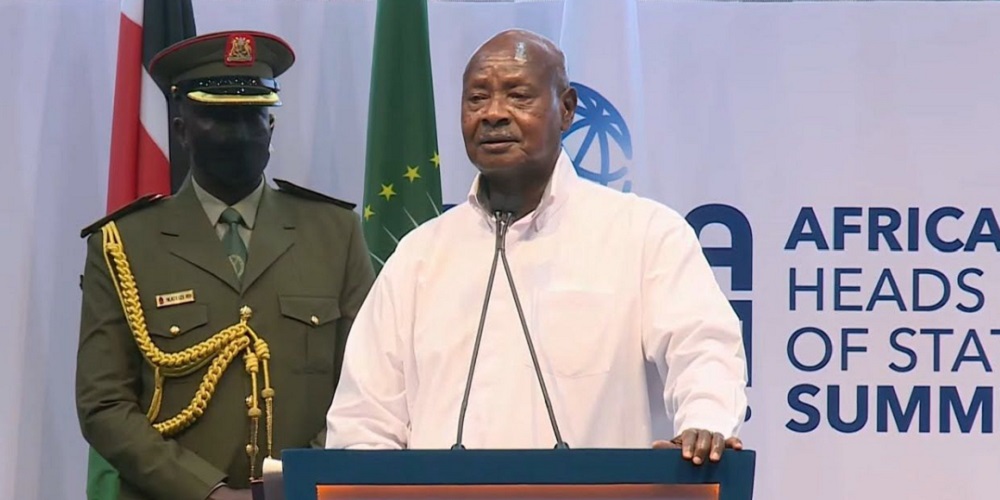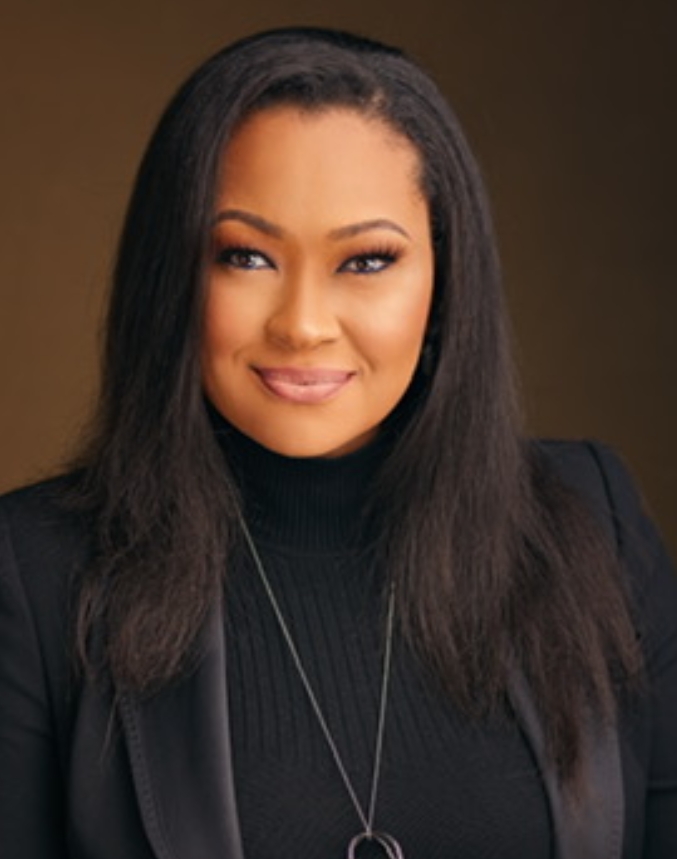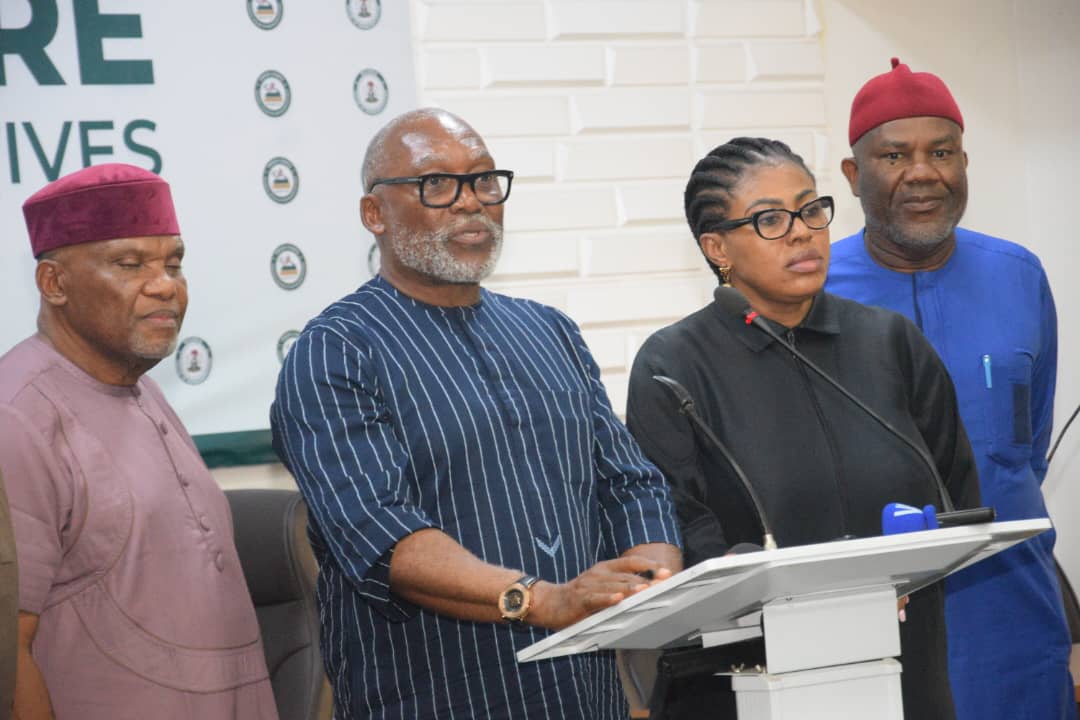News
Uganda President, Museveni Blasts Western Countries, Says ‘You Fund Seminars But Won’t Aid Manufacturing In Africa

President Yoweri Museveni of Uganda took a bold swipe at world leaders during his speech at the World Bank’s International Development Association summit for African Heads of state, held in Nairobi, Kenya, on Tuesday.
In his remarks, Museveni opined that most of Africa’s problems predicted over 60 years ago were a result of philosophical, ideological, and strategic economic mistakes.
He alleged that a fundamental African problem is that aid from the World Bank and other Western bodies was majorly for profiteering.
“The crisis which is in Africa today is because of philosophical, ideological, and strategic economic mistakes which we have been talking about since the 1960s. It is not an accident when you see the crisis in many African countries, the collapse of States. We predicted this in the 1960s – philosophical, ideological, and strategic mistakes. I don’t have time to amplify each one but I was very happy to hear the president of the World Bank talking about prosperity instead of profiteering.
“Aid has been for profiteering, this has been the problem. Now, the World Bank people and other groups have been talking about sustainable development. Even in your documents, I have seen those words there, sustainable development”, Museveni stated.
He argued that what Africa needed to thrive as a continent was not sustainable development as always suggested by the World Bank, and other key players in economic development, but social and economic transformation.
He urged the World Bank and world leaders to quit pushing sustainable development as a key factor in achieving a more developed African continent.
“I would ask you to change those words in your documents. Africa does not need what you could call sustainable development. Africa needs social and economic transformation. The main reason why there’s no growth is because the growth factors are not funded, they are not even understood. What are the growth factors, we now talk of private sector growth. Yes, but for the private sector to grow what does it need? It needs a low cost of production”, he said.
In his opinion, the main reason Africa remains underdeveloped is because the growth factors are not funded and they are not understood by the Western world.
He added that for Africa to be more developed and independent, the private sector needs funding. According to him, adequate funding for the transportation, power and agricultural sectors will boost low production costs.
“Ministers of finance, what are the low costs of production? Number one is transport. You must have low transport costs. Where do low transport costs come from? The railway? If you don’t fund the railway how will you get low transport costs?
“Wonderful people, IMF, where will low-cost operations come from if you don’t have a railway? If you don’t fund the railway, how would you get low transport costs? I have been here for the last 64 years, I have been watching as a student leader, as a freedom fighter and now as the leader of a country.
How many railways have been constructed or funded in Africa? The few that have been was by China, the Tanzanian railway to Zambia, and recently, another one here in Kenya. Tanzania on their own is building a railway line.
So if you’re talking of developing Africa, fund the railway. If you fund the railway, you will have a low cost of transport and you can produce cheap products which can be bought all over the world.
“The second cost pusher is electricity. If you don’t fund electricity and you talk about sustainable development, what are you then talking about? We must have low-cost electricity not exceeding 5 cents per kilowatts, per hour.
That is what I insist on in Uganda. I am tired of all these stories, I have put my foot down saying I don’t want to hear those stories. Uganda is a developing country and it will continue to develop because I don’t entertain nonsense anymore.”
Speaking further, Museveni who has ruled Uganda for over 40 years accused the World Bank and Western leaders of refusing to lend him money for capital projects such as the establishment of the Uganda Development Bank.
He lamented the rate at which loans are promptly approved and grated for frivolities but not for serious projects that would yield economic gains.
He said, “Borrowing, for what? Capacity building! Imagine! They call you to a hotel where you eat Chapati and mandazi, and they say that is capacity building. Capacity building should be on the ground and not just in seminars. So, the second point your Excellencies is electricity. The third one; is for those people who talk about private sector growth, I have been trying to borrow money for our Uganda Development Bank, a bank which funds manufacturers, but no, I don’t get support for that.
“They say they want my people to go to commercial banks. Those commercial banks are to encourage import because the only person who can borrow money from a commercial bank and pay it back is a trader who goes to China, Dubai buys goods, sells them quickly and pays the loan back. So, if you are serious, I need it here, about the low-cost funding for manufacturing, not stories.”
“How about funding for irrigation? Because if you want to stabilise agriculture, a country like Uganda is very rich, we have got everything. But sometimes, we have some erraticness because of the rains. So, to stabilise irrigation I’ve been trying to look for a loan for irrigation but I can’t easily get it, it is very difficult to get. But a loan for seminars is very quick.”
PUNCH
News
Nigerian Professional Footballer Abubakar Lawal Dies in Uganda

Nigeria’s Ministry of Foreign Affairs has confirmed the sudden death of Mr. Abubakar Lawal, a Nigerian professional footballer, in Uganda.
In a statement by the Acting Spokesperson, Kimiebi Imomotimi Ebienfa on Tuesday in Abuja, the ministry expressed its profound sorrow over the tragic loss and extended heartfelt condolences to his family, friends, teammates, and the entire Nigerian football community.
Lawal, a former Nigerian Under-20 International, was a key player for Uganda’s Vipers Football Club at the time of his death. In addition to his sporting career, he was also a final-year Business Administration student at Cavendish University.
According to Ebienfa, officials have been in contact with the Nigerian High Commission in Kampala, which is coordinating closely with local Ugandan authorities to determine the circumstances surrounding Lawal’s untimely demise.
Also a thorough investigation is underway, including an autopsy to verify the cause of death, with full consular assistance being provided to his family.
The ministry also underscored Nigeria’s strong bilateral relations with Uganda, expressing confidence that the Ugandan authorities will handle the investigation with utmost seriousness and sensitivity. The public has been urged to refrain from speculation and allow the investigation to proceed unhindered.
The Ministry of Foreign Affairs affirmed its commitment to safeguarding the welfare and rights of Nigerian citizens abroad as it continues to monitor the situation closely. The loss of Abubakar Lawal marks a somber moment for the nation, and his contributions both on and off the field will be deeply missed.
News
Unrelenting Senator Natasha drags Akpabio to court, demands N1.3bn for alleged defamation

By Kayode Sanni-Arewa
Unrelenting Senator Natasha Akpoti-Uduaghan has dragged Senate President, Godswill Akpabio, through the court for what she described as defamatory statement against her person.
The Senator, representing Kogi Central in the upper chamber, on the platform of the Peoples Democratic Party (PDP), raised concerns after her Senate seat was reassigned following a reshuffle triggered by opposition members switching to the majority Caucus.
She resisted the relocation, leading to a confrontation between her and the Senate President.
However, in a suit filed before the Federal Capital Territory High Court on 25 February 2025, the President of the Senate, the Federal Republic of Nigeria, and the Senior Legislative Aide to the Senate President, Mfon Patrick, were listed as the second and third defendants.
In the suit, marked CV/737/25, Akpoti-Uduaghan, through her lawyer, Victor Giwa, Natasha alleged that defamatory statements were made by the Senate President and published by his aide on Facebook.
According to him, the post, entitled “Is the Local Content Committee of the Senate Natasha’s Birthright?” included a statement suggesting that Akpoti-Uduaghan believed being a lawmaker was only about “pancaking her face and wearing transparent outfits to the chambers.”
Giwa argued that the statement was defamatory, provocative, and disparaging, lowering his client’s dignity in the eyes of her colleagues and the public.
She asked the court to make “A declaration that the words, ‘It is bottled anger by the Kogi lawmaker, who knows nothing about legislative rules. She thinks being a lawmaker is all about pancaking her face and wearing transparent outfits to the chambers,’ used and written by the third defendant at the prompting of the first and second defendants, were defamatory and intended to cause public opprobrium and disaffection toward the claimant.”
She also urged the court to restrain the defendants and their associates from making further defamatory statements against her on any platform.
The plaintiff also asked the court for “an order of perpetual injunction restraining the defendants, whether acting by themselves or through their agents, privies, assigns, or associates, from further publishing or causing to be published the said defamatory words or any similar publications about the claimant on social media or in any other manner capable of defaming her.”
Furthermore, Akpoti-Uduaghan asked the court to order the defendants to pay her N100 billion in general damages and N300 million as litigation costs.
“An order for the payment of the sum of N100,000,000,000 as general damages. An order for the payment of the sum of N300,000,000 as the cost of action,” she prayed the court.
News
South-East Caucus Urges NAFDAC to Reopen Onitsha Medicine Market, Target Offenders

By Gloria Ikibah
The South East Caucus in the House of Representatives has urged the National Agency for Food and Drug Administration and Control (NAFDAC) to reconsider the closure of the Onitsha Bridgehead Medicine Market in Anambra State.
Leader of the caucus, Rep. Igariwey Enwo, who made the plea at a press conference on Tuesday in Abuja, strongly cocondemned the activities of traders dealing in fake and substandard drugs, and said the continued lockdown of the market was having widespread negative effects.
Naijablitznews.com recalled that NAFDAC had recently sealed over 4,000 shops in Onitsha, 3,027 in Lagos, and another 4,000 in Aba as part of its nationwide crackdown on counterfeit and substandard medicines.
The Agency last week had said the markets remains lockdown.
Rep. Igariwey denounced those involved in the sale and distribution of fake and adulterated medications, describing them as “merchants of death and economic saboteurs” whose activities not only endanger public health but have also led to loss of lives.
He also commended NAFDAC for taking decisive action against these illegal operators but urged the agency to ensure that innocent and law-abiding traders are not unfairly punished alongside the culprits.
The caucus stressed that sealing the entire market has far-reaching consequences, particularly for medicine users in the South East and South-South regions, where the market serves as a major pharmaceutical hub.
The caucus therefore called for a targeted approach that prosecutes offenders while allowing legitimate businesses to continue operating.
-

 Metro21 hours ago
Metro21 hours agoGunmen attack Edo farming communities kill dozens, destroy properties
-

 News16 hours ago
News16 hours agoSEE Black Market Dollar To Naira Exchange Rate Today 26th February 2025
-

 News14 hours ago
News14 hours agoIBB’s Book: “I thank God the Igbo coup wrong impression has been buried -Senator Kalu(Video)
-

 Metro21 hours ago
Metro21 hours agoMan takes girlfriend’s life while beating her
-

 News16 hours ago
News16 hours agoJust in: David Setonji May Become New LSHA Speaker Meranda To Step Down
-

 News12 hours ago
News12 hours agoT-Plan Warns About Rising Drug Addiction Among Youths, Housewives
-

 News10 hours ago
News10 hours agoUS dumps UK, others from visa-free entry for 2025
-

 News16 hours ago
News16 hours ago2027: APC hammers El-Rufai over att@ck on Tinubu, Ribadu







